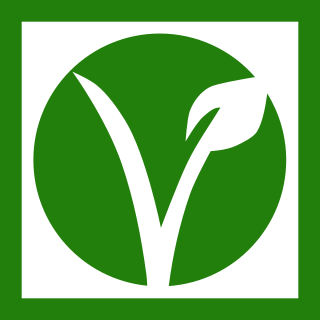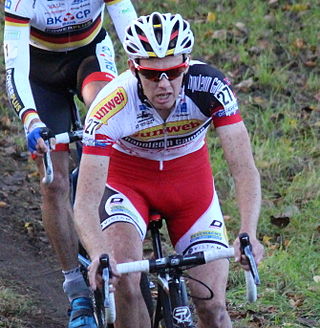
The Hanseatic League was a medieval commercial and defensive confederation of merchant guilds and market towns in Central and Northern Europe. Growing from a few North German towns in the late 12th century, the League between the 13th and 15th centuries ultimately encompassed nearly 200 settlements, across seven modern-day countries ranging from Estonia in the north and east to the Netherlands in the west and Kraków, Poland, in the south.

The Thirty Years' War was one of the longest and most destructive conflicts in European history, lasting from 1618 to 1648. Fought primarily in Central Europe, an estimated 4.5 to 8 million soldiers and civilians died as a result of battle, famine, and disease, while some areas of what is now modern Germany experienced population declines of over 50%. Related conflicts include the Eighty Years' War, the War of the Mantuan Succession, the Franco-Spanish War, and the Portuguese Restoration War.

Veganism is the practice of abstaining from the use of animal product—particularly in diet—and an associated philosophy that rejects the commodity status of animals. An individual who follows the diet or philosophy is known as a vegan. Distinctions may be made between several categories of veganism. Dietary vegans, also known as "strict vegetarians", refrain from consuming meat, eggs, dairy products, and any other animal-derived substances. An ethical vegan is someone who not only excludes animal products from their diet but also does not wear animal-derived clothing, opposes the use of animals for any purpose, and tries to avoid cruelty and exploitation of all animals wherever practical. Another term is "environmental veganism", which refers to the avoidance of animal products on the premise that the industrial farming of animals is environmentally damaging and unsustainable.

European cuisine comprises the cuisines of Europe including the cuisines brought to other countries by European settlers and colonists. Sometimes the term "European", or more specifically "continental" cuisine, is used to refer more strictly to the cuisine of the western parts of mainland Europe.

Flexitarianism or flexitarism is a semi-vegetarian diet in which people do not eat meat one or more days a week.

Dutch cuisine is formed from the cooking traditions and practices of the Netherlands. The country's cuisine is shaped by its location in the fertile North Sea river delta of the European Plain, giving rise to fishing, farming, and trading over sea, its former colonial empire and the spice trade.
Imperial immediacy was a privileged constitutional and political status rooted in German feudal law under which the Imperial estates of the Holy Roman Empire such as Imperial cities, prince-bishoprics and secular principalities, and individuals such as the Imperial knights, were declared free from the authority of any local lord and placed under the direct authority of the Holy Roman Emperor, and later of the institutions of the Empire such as the Diet, the Imperial Chamber of Justice and the Aulic Council.

The Dutch are a Germanic ethnic group and nation native to the Netherlands. They share a common ancestry and culture and speak the Dutch language. Dutch people and their descendants are found in migrant communities worldwide, notably in Aruba, Suriname, Guyana, Curaçao, Argentina, Brazil, Canada, Australia, South Africa, New Zealand and the United States. The Low Countries were situated around the border of France and the Holy Roman Empire, forming a part of their respective peripheries and the various territories of which they consisted had become virtually autonomous by the 13th century. Under the Habsburgs, the Netherlands were organised into a single administrative unit, and in the 16th and 17th centuries the Northern Netherlands gained independence from Spain as the Dutch Republic. The high degree of urbanization characteristic of Dutch society was attained at a relatively early date. During the Republic the first series of large-scale Dutch migrations outside of Europe took place.
Superfood is a marketing term for food claimed to confer health benefits resulting from an exceptional nutrient density. The term is not commonly used by experts, dietitians and nutrition scientists, most of whom dispute that particular foods have the health benefits claimed by their advocates. Even without scientific evidence of exceptional nutrient content, many new, exotic, and foreign fruits or ancient grains are marketed under the term – or superfruit or supergrain respectively – after being introduced or re-introduced to Western markets.

Vegetarian and vegan dietary practices vary among countries. Differences include food standards, laws, and general cultural attitudes toward vegetarian diets.

"Brother Louie" is a song by German duo Modern Talking, released as the lead single from their third studio album, Ready for Romance (1986). It was their fourth consecutive single to top the German Singles Chart, after "You're My Heart, You're My Soul", "You Can Win If You Want" and "Cheri, Cheri Lady".

Dieter Vanthourenhout is a Belgian professional racing cyclist, who currently rides for UCI Continental team Pauwels Sauzen–Bingoal. He is the brother of racing cyclist Michael Vanthourenhout.
The 2008–09 season of the Belgian First Division was the 106th season of top-tier football in Belgium. The regular season began on 16 August 2008 and ended on 16 May 2009. Standard Liège were the defending champions.

Geronimo's Cadillac is Modern Talking's first single released from the fourth album In the Middle of Nowhere. This single is also the first one not to reach the top of the German singles chart. "Geronimo's Cadillac" was released in Germany and in other European territories on 6 October 1986. The single peaked at No. 3 on the German single chart on 3 November 1986, almost a month after its release. The single spent five weeks within the top-10 and total of 13 weeks on the top-100 in Germany. While "Geronimo's Cadillac" also entered the top-5 in Austria, it managed to enter the top-10 in Switzerland, Sweden and Norway.

An omnivore is an animal that has the ability to eat and survive on both plant and animal matter. Obtaining energy and nutrients from plant and animal matter, omnivores digest carbohydrates, protein, fat, and fiber, and metabolize the nutrients and energy of the sources absorbed. Often, they have the ability to incorporate food sources such as algae, fungi, and bacteria into their diet.

Vesanto Melina is a Canadian Registered Dietitian and co-author of books that have become classics in the field of vegetarian, vegan, and raw foods nutrition, have sold almost a million copies in English and are in nine additional languages. She has presented talks and workshops on various aspects of vegetarian, vegan and raw foods and nutrition for dietitians, health professionals, and vegetarian associations in 17 American states and 9 Canadian provinces, and in 10 countries.
The 2012–13 season of the Belgian Second Division began on 22 August 2012 and ended in April 2013. The season was won by Oostende, who were thus promoted to the Belgian Pro League. Mouscron-Péruwelz, Westerlo and WS Woluwe played the second division final round but lost this to Cercle Brugge, resulting in no other team gaining promotion. At the bottom end of the table, Sint-Niklaas and Oudenaarde were relegated, while Heist were saved due to the bankruptcy of Beerschot AC.

Kaasstengels, Kastengel or kue keju are a Dutch cheese snack in the shape of sticks. Owed to its colonial links to the Netherlands, kaasstengels are also commonly found in Indonesia. The name refers to its ingredients, shape and origin; kaas is the Dutch word for "cheese", while stengels means "sticks". Unlike most cookies, kaasstengels taste savoury and salty instead of sweet. In Indonesia kaasstengels, together with nastar and putri salju are the popular kue kering during festive occasion, such as Natal (Christmas) and Lebaran.

The Nederlandse Vereniging voor Veganisme or NVV is a Dutch association which strives to promote the vegan lifestyle, and to end animal exploitation. The association was founded on 8 September 1978 in Arnhem as the Veganistenkring, the first organisation in the Netherlands of its kind. Shortly thereafter, its name was changed to Vereniging Veganisten Organisatie, finally adopting its present name in 1987.














